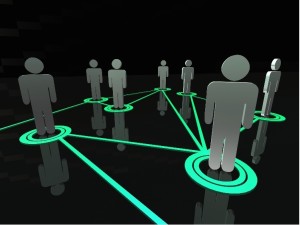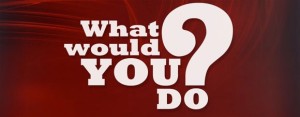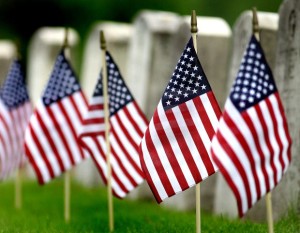You have not lived today until you have done something for someone who can never repay you. ~John Bunyan
 Last week I saw a 30-second news story that is worth sharing. The man sitting in the chair in this photo is Mr. Steve. He’s a janitor at an elementary school in Bourbonnais, Illinois. These second graders are lined up to get Mr. Steve’s signature at the end of the school year because (quoting the school principal) he “always listens and always goes above and beyond.”
Last week I saw a 30-second news story that is worth sharing. The man sitting in the chair in this photo is Mr. Steve. He’s a janitor at an elementary school in Bourbonnais, Illinois. These second graders are lined up to get Mr. Steve’s signature at the end of the school year because (quoting the school principal) he “always listens and always goes above and beyond.”
When I heard that description I immediately thought that Mr. Steve is a well-deserved example of generosity of spirit. It doesn’t require a leadership “title” to have generosity of spirit, but it will make you a leader, regardless of your title. Just look at all of Mr. Steve’s followers!
I did a little research to see what others had to say about a spirit of generosity and leadership.
When I say generosity I don’t necessarily mean monetary generosity, I mean generosity of kindness, compassion, friendship, understanding, and love. The small contributions we can make to the lives of others simply by stepping outside of our own world a bit. ~Heidi Oran
“Generosity of spirit” is one of the most important phrases you could use to describe virtue in another person or to name a worthy goal toward which to grow in one’s own life. I just think it’s fundamental that, without generosity of spirit, we really don’t have much except a hard-scrabble life, a zero-sum game, and a “war of all against all,” each one trying to get his or her share or more of the pie. Generosity of spirit simply says “I’ll give it away and I don’t need anything in return.” ~Parker Palmer
Leaders quite often confuse being generous with giving people money—raises, bonuses, stock options, etc. No one will refuse money if it’s offered, certainly, but research shows that more money isn’t much of a motivator for people. The generous leader gives people what they truly want: knowledge, power, information, credit, praise, responsibility, and authority. Perhaps most importantly, the generous leader gives faith; assumes that his or her people want to succeed and do good work. The generous leader assumes positive intent. When leaders share whatever resources they have, it evokes loyalty, support, and commitment. ~Erika Andersen
A leader with a generous spirit delegates not just routine work, but understands about delegating worthwhile work that becomes a gift of development and growth for someone else. How we love those leaders. These are the leaders that make us want to get out of bed in the morning and go to work to give that person the very best that we have to offer. These are the leaders who get our discretionary effort, every day. ~Bruna Martinuzzi
Is there an unexpected leader in your organization? Have you thanked them lately for their enduring generosity of spirit?
 read that word because in our highly-connected world it can become all-consuming. You can easily let networking take all of your time without a great deal of return on that investment. I recently came across a blog post on
read that word because in our highly-connected world it can become all-consuming. You can easily let networking take all of your time without a great deal of return on that investment. I recently came across a blog post on 

 ed and intense work environment, it seems to take a team of people to help us find, and stay, on a positive and productive path. At different times and in various circumstances we may benefit from the assistance of a coach, a consultant, a counselor, or a mentor.
ed and intense work environment, it seems to take a team of people to help us find, and stay, on a positive and productive path. At different times and in various circumstances we may benefit from the assistance of a coach, a consultant, a counselor, or a mentor.